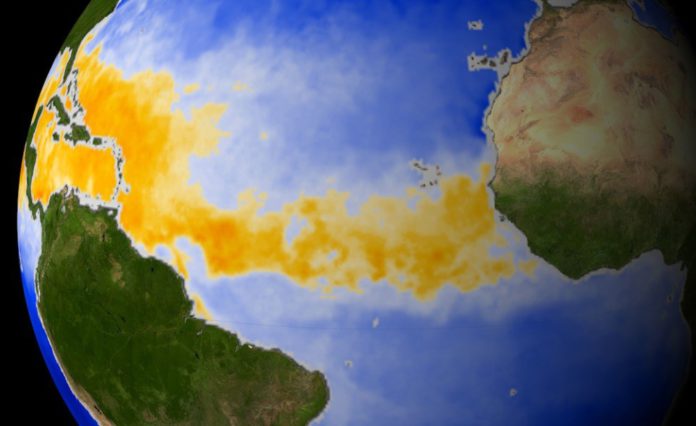New Delhi (NVI): Stating climate change as a global challenge which requires efforts by all nations based on the principle of common, the Environment Ministry informed Lok Sabha yesterday that the government is committed to combating climate change at the highest level through its several programmes and schemes.
In a written reply to a question, MoS Environment, Forest & Climate Change Babul Supriyo said, “The government is implementing National Action Plan on Climate Change (NAPCC) which comprises eight missions in specific areas of solar energy, energy efficiency, water, agriculture, Himalayan ecosystem, sustainable habitat, green India and strategic knowledge on climate change.”
“NAPCC provides an overarching framework for all climate actions. Thirty-three States and Union Territories (UTs) have prepared their State Action Plan on climate change in line with NAPCC taking into account State’s and UT’s specific issues relating to climate change.”
“Under the Paris Agreement, India has submitted Nationally Determined Contributions (NDC) with target to reduce the emissions intensity of its Gross Domestic Product (GDP) by 33 to 35 % by 2030 from 2005 level, to achieve about 40% cumulative electric power installed capacity from non-fossil fuel-based energy resources by 2030,” he said.
The government is also implementing the scheme, ‘National Adaptation Fund for Climate Change’ to support adaptation measures of States and UTs in areas that are particularly vulnerable to the adverse impacts of climate change, Supriyo said.
India is a party to the United Nations Framework Convention on Climate Change (UNFCCC). It has submitted Initial National Communication (INC) in 2004 and Second National Communication (SNC) in 2012 to the UNFCCC.
As part of the National Communications, the Ministry conducted studies on the impact of climate change in India which are summarised in the ‘Vulnerability Assessment and Adaptation’ chapters.
For the SNC, climate change scenarios were analysed using a high-resolution regional climate model. Simulations for 2020s, 2050s and 2080s indicate all-round warming for the Indian subcontinent.
Impact of climate change and climate variability on the water resources are likely to affect irrigated agriculture, installed power capacity, environmental flows in the dry season and wet season, the written statement said.
Apart from National Disaster Management Authority (NDMA) each State has its own State Disaster Management Authority to deal with such events. NDMA has issued several disaster specific guidelines for managing extreme weather-related disasters such as cyclones, floods and heat wave. National Disaster Management Plan (NDMP) has been formulated to assist all stakeholders including State Governments in disaster risk management of various hazards including hazards related to climate change.
The National Cyclone Risk Mitigation Project (NRCMP) is under implementation in eight coastal states to mitigate the sufferings of the coastal community. Cyclone shelters and early warning system created under this project proved to be of great help during cyclones ‘Phailin’ in 2013, ‘Hud-Hud’ in 2014, ‘Titli’ in 2018 and cyclone ‘Fani’ in 2019.
–ps











